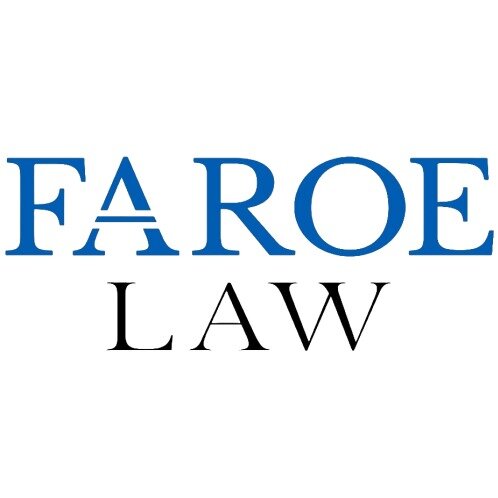Best Land Use & Zoning Lawyers in Faroe Islands
Share your needs with us, get contacted by law firms.
Free. Takes 2 min.
Free Guide to Hiring a Real Estate Lawyer
Or refine your search by selecting a city:
List of the best lawyers in Faroe Islands
About Land Use & Zoning Law in Faroe Islands
Land use and zoning law in the Faroe Islands regulates how land can be used, developed, and preserved. This involves a comprehensive framework governing urban planning, rural development, agricultural usage, environmental conservation, and property rights. The system ensures that land development aligns with both communal needs and environmental sustainability, balancing individual interests with the public good.
Why You May Need a Lawyer
There are several situations where individuals or entities might require legal assistance in land use and zoning in the Faroe Islands:
- Disputes over property boundaries or land use rights.
- Challenges related to zoning regulations and obtaining necessary permits for construction or renovation projects.
- Legal matters involving redevelopment of farmland or conversion of land use from agricultural to residential or commercial.
- Issues related to environmental regulations affecting development plans.
- Any legal challenge involving governmental or local authority decisions on land use.
Local Laws Overview
Several key aspects of local laws are particularly relevant to land use and zoning in the Faroe Islands:
- The Planning Act, which outlines the framework for land use, development, and conservation efforts.
- Environmental Protection regulations that ensure land use does not adversely affect the Faroese natural landscape.
- Property law that defines ownership rights, transfer processes, and inheritance of land properties.
- Building codes and zoning ordinances that specify the types of developments permitted in various zones.
Frequently Asked Questions
What is zoning and why is it important?
Zoning defines how land in certain areas can be used, whether for residential, commercial, agricultural, or industrial purposes. It is important to maintain a harmonious development structure and environmental conservation.
How can I find out the zoning laws for a specific area?
You can contact your local municipal planning department or visit their office to access current zoning maps and regulations.
What steps are involved in changing the zoning classification of my property?
The process generally involves submitting a rezoning application to your local municipal planning authority, followed by a review process and possible public hearings.
What are the penalties for violating zoning laws?
Penalties can include fines, forced cessation of construction, or mandatory removal of unlawful structures among others. Specific penalties are determined by the local regulations and the severity of the violation.
Can I appeal a zoning decision I disagree with?
Yes, you can appeal a decision. The process usually involves submitting an appeal to the relevant local authority or a specialized zoning board.
How does environmental law affect land development in the Faroe Islands?
Environmental laws prioritize the protection of natural landscapes and biodiversity, often affecting permissible development types and practices.
Are there any exemptions to zoning laws for small-scale projects?
Some minor home improvements or agricultural buildings might qualify for exemptions, but it’s essential to verify with local authorities.
What is a land use permit?
A land use permit is an official authorization required for specific types of work or changes in land use, ensuring compliance with zoning laws.
How do I apply for a construction permit?
Contact your local government’s planning office to obtain the necessary forms, guidelines, and submission procedures for a construction permit.
Are there special zoning laws in rural areas?
Yes, rural areas may have specific zoning laws that prioritize agricultural use and environmental conservation, which can differ from urban region regulations.
Additional Resources
If you need more information on land use and zoning, consider reaching out to the following resources:
- The Faroese Ministry of the Environment and Industry, which oversees the enforcement of land use policies.
- Local municipal planning offices that can provide zoning maps and detailed regulations.
- Environmental NGOs that offer insights into sustainable development practices.
Next Steps
If you require legal assistance with any land use and zoning issues, consider the following steps:
- Consult with a local lawyer who specializes in land use and zoning law in the Faroe Islands.
- Prepare all relevant documents, such as property deeds and any correspondence with local authorities.
- Maintain a clear timeline of any incidents, developments, or communications involved in your situation.
- Schedule a consultation to discuss your case and possible actions.
Lawzana helps you find the best lawyers and law firms in Faroe Islands through a curated and pre-screened list of qualified legal professionals. Our platform offers rankings and detailed profiles of attorneys and law firms, allowing you to compare based on practice areas, including Land Use & Zoning, experience, and client feedback.
Each profile includes a description of the firm's areas of practice, client reviews, team members and partners, year of establishment, spoken languages, office locations, contact information, social media presence, and any published articles or resources. Most firms on our platform speak English and are experienced in both local and international legal matters.
Get a quote from top-rated law firms in Faroe Islands — quickly, securely, and without unnecessary hassle.
Disclaimer:
The information provided on this page is for general informational purposes only and does not constitute legal advice. While we strive to ensure the accuracy and relevance of the content, legal information may change over time, and interpretations of the law can vary. You should always consult with a qualified legal professional for advice specific to your situation.
We disclaim all liability for actions taken or not taken based on the content of this page. If you believe any information is incorrect or outdated, please contact us, and we will review and update it where appropriate.
Browse land use & zoning law firms by city in Faroe Islands
Refine your search by selecting a city.










